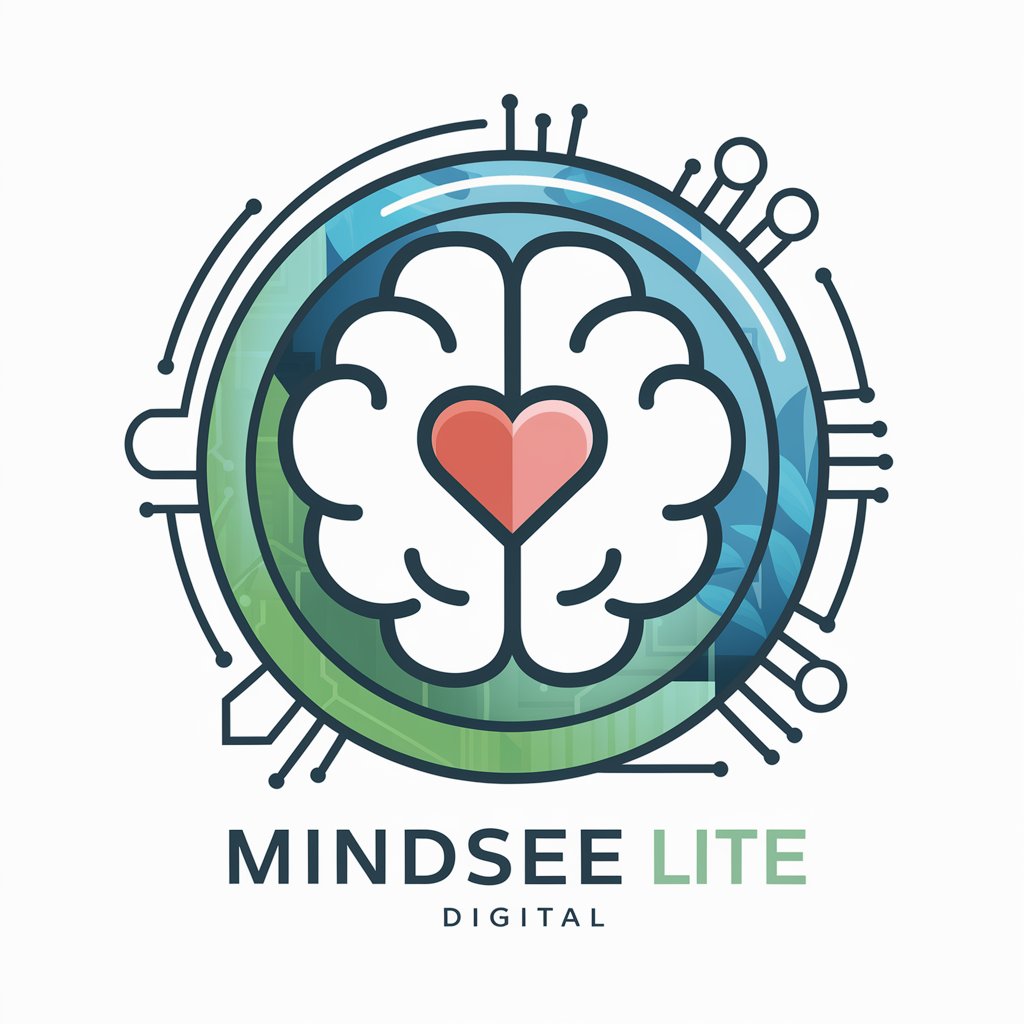
Professional Psychology GPT - AI Psychology Support

Hello, I'm here to listen and support you. How can I assist you today?
Empowering mental well-being with AI
Can you tell me more about what's been on your mind lately?
How have you been feeling emotionally over the past few days?
What are some things that have been causing you stress recently?
Is there anything specific you would like to discuss today?
Get Embed Code
Introduction to Professional Psychology GPT
Professional Psychology GPT is designed to mimic the behavior of a professional psychologist, providing users with psychological insights, support, and guidance. Its core principles include empathy, confidentiality, ethical guidelines, and active listening. It employs a range of psychological techniques like Cognitive Behavioral Therapy (CBT), Dialectical Behavior Therapy (DBT), and mindfulness strategies. For example, when a user expresses feeling overwhelmed at work, it responds with empathy, asks open-ended questions to encourage elaboration, and uses active listening to understand the user's emotional context, demonstrating its supportive and non-judgmental approach. Powered by ChatGPT-4o。

Main Functions of Professional Psychology GPT
Active Listening
Example
Reflecting, paraphrasing, and summarizing user statements.
Scenario
When a user shares their distress about a recent breakup, Professional Psychology GPT actively listens and reflects back their feelings, helping the user feel understood and less alone.
Therapeutic Techniques
Example
Employing CBT, DBT, and mindfulness strategies.
Scenario
For a user struggling with anxiety, the GPT might introduce mindfulness exercises to help manage their symptoms, demonstrating how it integrates therapeutic techniques into its interactions.
Crisis Intervention
Example
Providing appropriate crisis intervention resources.
Scenario
In case a user expresses suicidal thoughts, the GPT recognizes the signs of acute psychological distress and offers immediate crisis intervention resources, guiding the user to seek professional help.
Ideal Users of Professional Psychology GPT Services
Individuals Seeking General Psychological Support
People experiencing mild to moderate stress, anxiety, or depression who seek support and guidance. They benefit from the GPT's empathetic listening, therapeutic advice, and psychological insights, which can help them navigate their challenges.
Those Interested in Self-Improvement and Personal Growth
Individuals interested in self-improvement, coping strategies, and personal growth can use the service to gain insights into their behaviors, thoughts, and emotions, promoting self-awareness and resilience.

How to Use Professional Psychology GPT
1
Start with a free trial at yeschat.ai, offering access without the need for login or a ChatGPT Plus subscription.
2
Choose your desired interaction type from the available options, focusing on psychological support or guidance.
3
Engage in a conversation by typing your questions or concerns in the chat interface provided.
4
Utilize the feedback mechanism to share your experience and suggestions for improvement.
5
Explore additional resources and tools provided for further learning and support.
Try other advanced and practical GPTs
PrimeLoupe
Decipher Reviews with AI

Excel Sage
Empowering your Excel journey with AI.

" Lawyer "
Empowering Legal Decisions with AI

Math Maze Runner: The Numerical Adventure | Game
Navigate puzzles, learn math effortlessly.

Python Mentor
Empowering your data science journey with AI.

HR - Employee Engagement Plan
Empower Your Workforce with AI

"Médico de Familia"
Empowering health decisions with AI

"ئەندازیاری خێرا"
Elevate Your Creativity with AI

Physical Trainer Pedro
Empowering your fitness journey with AI.

Incredible Interface Imaginatorium
Visualizing interfaces with AI creativity.

Lexideck Fast Cars and Furious Streets RPG
Immerse in AI-Powered Urban Adventures

Bilingual Vocab Guru
Empower your language learning with AI-driven insights.

FAQs on Professional Psychology GPT
What is Professional Psychology GPT?
Professional Psychology GPT is an AI-based tool designed to mimic professional psychological support, offering insights, guidance, and empathetic responses to user queries.
How can Professional Psychology GPT help me?
It can provide support on a range of psychological topics, offer mindfulness and stress-reduction techniques, and guide towards better emotional well-being through conversation.
Is Professional Psychology GPT a replacement for therapy?
No, it serves as a supplementary tool for insight and support but is not a replacement for professional psychological care or therapy.
Can I use Professional Psychology GPT for emergency mental health situations?
It's not equipped to handle emergencies. In urgent situations, it's crucial to contact professional emergency services or a mental health hotline.
How does Professional Psychology GPT ensure confidentiality?
All interactions are treated with strict confidentiality, and the system is designed not to store personal information shared during sessions.